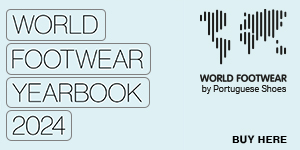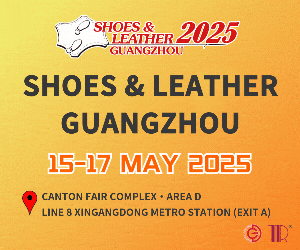José Fernando Bello from CICB: the Brazilian leather industry is fully committed to sustainability

Ahead of the CICB Sustainability Forum, which will take place on the 13th of March during the Fimec trade fair in Brazil, we spoke to the Executive President of CICB, José Fernando Bello, about his expectations for the event and his views on sustainability in the leather industry
With a ten-year history and an audience that includes the people who make, promote and live the leather chain in Brazil, such as tannery commercial teams, technicians, directors, customers, suppliers and the press, “the CICB Sustainability Forum is the most important event for the exchange of knowledge and new ideas in the Brazilian leather industry”, stresses José Fernando Bello, Executive President of the Centre for the Brazilian Tanning Industry (CICB)..
What’s more, the partnership forged last year with Fimec (International Fair of Leather, Chemicals, Components, Machines and Equipment for Footwear and Tanneries), “recognised for being a platform for innovation, networking, and business” in the leather and footwear industry, is helping to create “very positive” synergies for all those involved. In the end “it’s a very fruitful partnership, which facilitates access and multiplies possibilities”.
That’s why it’s expected that “the event will share knowledge of good practices and successful projects on the central theme, while promoting relationships between the audience and the integration of professionals in the sector”. And the theme is as important as ever: links for traceability.
Traceability
“Our industry is fully committed to sustainability, which includes traceability, with projects by tanneries and partners from the private sector, governments and organisations,” he says. The Executive Vice President of the CICB highlights that this investment can’t just be internal, but must involve the entire value chain, including suppliers and customers, which, in the case of Brazil, has led “to advances in sustainability indicators and hide traceability records”.The country has “the highest number of sustainability sector certifications in the world”, including “the Brazilian Leather Sustainability Certification (CSCB) Programme, which certifies the best practices of the national industry”, recalls Bello.
Challenges Ahead
But there’s still work to be done on sustainability, especially in the leather industry. “We need to demystify leather by showing best practices, its sustainable nature and how it contributes to the environment and society”, emphasises the CICB Executive President.“We are a solution for the planet” – he continues, “the beef and dairy industry exists in the world for human consumption”. “The hides produced in this sector have virtually no commercial value - they represent between 1% and 2% of the amount paid for cattle. Tanneries transform a by-product (the hide) into a valuable material, leather. Without this activity, the hides would be at risk of being dumped in landfill sites, creating a huge environmental problem. By using a leather product, we are contributing to less waste in the world, producing durable goods and consuming less”, he argues.
For this reason, the industry needs to “improve communication with the consumer public, a closer dialogue with the new generations”, while continuing to “invest in technology and sustainability” throughout the leather chain.
More information about CICB Sustainability Forum can be found HERE
Image Credits: Art by Sofia Pádua
Related news
Related Events
Related Organizations
-

ABRAMEQ - Brazilian Association of the Machinery and Equipment for the Footwear and Leather Industries
-

ABQTIC - Brazilian Association of Leather Industry Chemists and Technicians
-

CICB - Centre for the Brazilian Tanning Industry
-

IBTeC - Brazilian Institute of Technology for Leather, Footwear and Artifacts



















